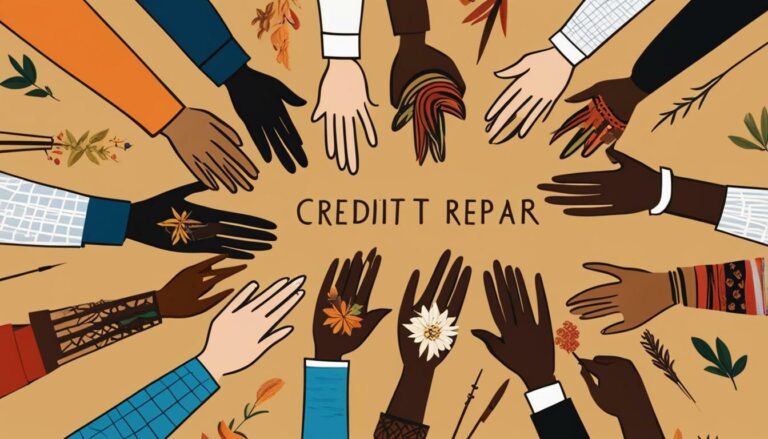Strategies: How to Remove Student Loans from a Credit Report

If you’re looking to remove student loans from your credit report, understanding the strategies and steps involved is crucial. It’s important to note that student loans can only be removed if there is inaccurate information on your credit report. Student loans are typically removed once they are paid off or after seven years of being in default.
Before delving into the impact of student loans on your credit report, it’s helpful to have a clear understanding of what a credit report entails. A credit report contains information about your current and past credit activity and is compiled by credit reporting companies. Lenders use this information to assess loan offers and determine interest rates.
Defaulting on student loans can lead to severe consequences, including the full amount becoming due immediately, wage garnishment, and loss of eligibility for further federal student aid.
If you come across any inaccurate student loan entries on your credit report, you have the option to dispute them. This can be done by contacting your loan servicer, providing documentation of errors, and requesting accurate reporting to the credit bureaus. It’s also a good practice to regularly check your credit report and send a written copy of your dispute to the credit bureaus.
Student loans that have been paid off or are in good standing can remain on your credit report for up to 10 years. However, late payments and defaulted student loans can negatively impact your credit for up to seven years.
🚨 TUIC Errors + Low Credit Score?
CreditScoreIQ helps you build credit faster by reporting utility bills to all 3 bureaus—while you dispute errors.
Start Building Credit Today →Improving your credit score can be achieved by keeping your credit utilization low, paying bills on time, and only applying for necessary credit. Monitoring your credit regularly to ensure accuracy and addressing any errors or discrepancies is also crucial.
In conclusion, removing student loans from a credit report is only possible if there is inaccurate information. The process involves disputing errors with loan servicers and credit bureaus.
Key Takeaways:
- Student loans can only be removed from a credit report if there is inaccurate information.
- Understanding how credit reports work is essential in managing student loans and their impact on your credit.
- Defaulting on student loans can lead to severe consequences, including the full amount becoming due immediately and wage garnishment.
- Disputing inaccurate student loan entries on your credit report involves contacting loan servicers and credit bureaus.
- Improving your credit score can be achieved by keeping credit utilization low, paying bills on time, and applying for necessary credit only.
Understanding Credit Reports and Student Loans
Before delving into the process of removing student loans from your credit report, it’s essential to understand how credit reports work and the impact student loans can have on them. A credit report is a detailed record of your credit history, including information about your loans, credit cards, and payment history. It is compiled by credit reporting companies and used by lenders to evaluate your creditworthiness.
Student loans can significantly influence your credit report. If you consistently make on-time payments and manage your loans responsibly, they can have a positive impact on your credit score. However, missed payments, defaults, or delinquencies can have adverse effects. Late payments can remain on your credit report for up to seven years, while defaulted student loans can stay on your report for up to seven years from the date of the first missed payment.
Student loan forgiveness is an option for those struggling to repay their loans, particularly for borrowers who work in certain public service fields. This forgiveness program can help remove student loans from your credit report, but it’s crucial to meet the eligibility criteria and follow the required procedures. Additionally, you can dispute inaccurate information on your credit report related to your student loans. If you believe there are errors or discrepancies, you have the right to challenge them by contacting your loan servicer and the credit reporting bureaus.
| Impact of Student Loans on Credit Reports | Duration on Credit Report |
|---|---|
| Student loans in good standing | Can remain on your credit report for up to 10 years |
| Late payments on student loans | Can negatively impact your credit for up to seven years |
| Defaulted student loans | Can remain on your credit report for up to seven years from the date of the first missed payment |
It’s crucial to regularly monitor your credit report to ensure accuracy and address any errors or discrepancies promptly. By staying proactive and taking steps to manage your student loans responsibly, you can minimize the negative impact on your credit report and work towards a healthier financial future.
Disputing Inaccurate Student Loan Entries
If you notice any inaccuracies or errors in your student loan entries on your credit report, it’s important to take action by initiating a credit report dispute. Disputing these entries can help ensure that your credit report accurately reflects your student loan status and prevent any negative impact on your credit score.
Here are the steps to follow when disputing inaccurate student loan entries:
- Gather documentation: Collect all relevant documents that support your claim of inaccuracies, such as loan statements, payment records, and correspondence with your loan servicer.
- Contact your loan servicer: Reach out to your loan servicer to explain the inaccuracies and provide the supporting documentation. Request that they correct the information and update it with the credit bureaus.
- Submit a written dispute: Send a written dispute to each of the three major credit bureaus – Experian, Equifax, and TransUnion. Include copies of the supporting documentation and clearly explain the errors. Request that they investigate and make the necessary corrections.
- Monitor progress: Keep track of your dispute by regularly checking your credit report. The credit bureaus have 30 days to investigate and respond to your dispute. If the inaccuracies are not corrected within this timeframe, follow up with the credit bureaus to ensure proper resolution.
It’s important to note that disputing inaccurate student loan entries may take time and persistence. However, the effort is worthwhile to ensure that your credit report accurately reflects your financial history and improves your overall creditworthiness.
| Term | Explanation |
|---|---|
| Credit Report Dispute | The process of alerting the credit bureaus about incorrect information on your credit report and requesting correction or removal. |
| Student Loan Default Removal | The process of removing a defaulted student loan from your credit report by resolving the default, such as through loan rehabilitation or consolidation. |
| Loan Rehabilitation | A process that allows borrowers to rectify defaulted student loans by making a series of agreed-upon payments to bring the loans back into good standing. |
The Impact of Student Loan Repayment on Credit Reports
Successfully repaying your student loans can have a positive impact on your credit report and overall credit score. When you make consistent, on-time payments towards your student loan debt, it demonstrates to lenders that you are responsible and financially capable. This can help improve your creditworthiness and increase your chances of securing future loans or credit.
According to credit reporting companies, such as TransUnion and Equifax, a history of on-time student loan payments can contribute to a higher credit score over time. This is because payment history is one of the most significant factors considered when calculating your credit score. By making regular payments, you establish a positive payment history, which reflects favorably on your credit report.
Furthermore, successfully repaying your student loans can help you reduce your overall debt-to-income ratio. This ratio is an essential factor in determining your creditworthiness. Lenders consider your debt-to-income ratio to assess your ability to manage additional debt responsibly. By reducing your student loan debt through consistent repayment, you can lower your debt-to-income ratio and improve your chances of being approved for future credit.
Strategies for Improving Credit Score
Improving your credit score is essential for financial independence, and there are several strategies you can implement to achieve this goal. By following these tips, you can take control of your credit and work towards a higher score.
- Keep credit utilization low: Your credit utilization ratio is the amount of available credit you’re using. It’s important to keep this ratio as low as possible to demonstrate responsible credit management. Aim to keep your credit utilization below 30%.
- Pay bills on time: Late payments can have a significant negative impact on your credit score. Make it a priority to pay all of your bills, including credit card payments, on time. Consider setting up automatic bill payments or reminders to help you stay on track.
- Minimize new credit applications: Applying for new credit can temporarily lower your credit score. Only apply for credit when necessary and carefully consider whether you really need it. Multiple credit inquiries within a short period of time can signal financial instability to lenders.
Monitoring your credit regularly is another crucial step in improving your credit score. By checking your credit reports, you can ensure that all information is accurate and address any errors or discrepancies promptly. You are entitled to a free copy of your credit report from each major credit bureau once a year, so take advantage of this opportunity.
Summary
To improve your credit score, focus on keeping your credit utilization low, paying bills on time, and minimizing new credit applications. Monitor your credit reports regularly for accuracy and address any errors or discrepancies promptly. By implementing these strategies, you can take control of your credit and work towards a stronger financial future.
| Strategies for Improving Credit Score |
|---|
| Keep credit utilization low |
| Pay bills on time |
| Minimize new credit applications |
Conclusion
Removing student loans from your credit report requires understanding credit report disputes and taking necessary actions to ensure accurate reporting. If there is inaccurate information on your credit report, you can dispute it with your loan servicer and credit bureaus. By providing documentation of errors and requesting accurate reporting, you can potentially have the inaccurate student loan entries removed.
It is important to note that student loans are typically removed from a credit report once they are paid off or after seven years of being in default. Defaulting on student loans can have severe consequences, including the full amount becoming due immediately, wage garnishment, and loss of eligibility for further federal student aid.
Improving your credit score is also crucial in maintaining a healthy credit report. To do so, it is recommended to keep your credit utilization low, pay your bills on time, and only apply for necessary credit. Regularly monitoring your credit and addressing any errors or discrepancies is also important to ensure accuracy and maintain a positive credit history.
In conclusion, it is possible to remove student loans from your credit report if there is inaccurate information. By understanding credit report disputes and following the necessary steps, you can work towards accurate reporting and potentially improve your overall credit profile.
FAQ
Can I remove student loans from my credit report?
You can only remove student loans from your credit report if there is inaccurate information present.
How are credit reports and credit scores related to student loans?
Credit reports include details about your credit activity, including student loans, while credit scores are calculated based on the information in your credit report.
What happens if I default on my student loans?
Defaulting on student loans can result in serious consequences, such as immediate repayment, wage garnishment, and loss of eligibility for further federal student aid.
How can I dispute inaccurate student loan entries on my credit report?
To dispute inaccurate student loan entries, contact your loan servicer, provide documentation of errors, and request accurate reporting to the credit bureaus.
How long do student loans stay on a credit report?
Student loans that are paid off or in good standing can remain on your credit report for up to 10 years, while late payments and defaulted student loans can negatively impact your credit for up to seven years.
What are some strategies for improving my credit score?
Strategies for improving your credit score include keeping credit utilization low, paying bills on time, and applying only for necessary credit.
Source Links
- https://www.sofi.com/learn/removing-student-loans-from-credit-report/
- https://www.capitalone.com/learn-grow/money-management/how-to-remove-student-loans-from-credit-report/
- https://www.sparrowfi.com/blog/how-to-remove-student-loans-from-your-credit-report
Ready to Improve Your Credit?
Disputing TUIC errors is step one. Step two? Boost your score by reporting utility payments with CreditScoreIQ.
Get Started Now (Only $1 Trial) →3-bureau reporting • $1M identity insurance • Dark web monitoring




